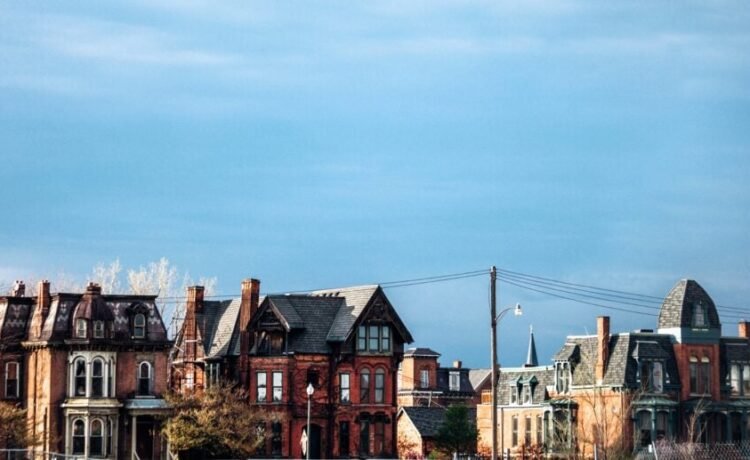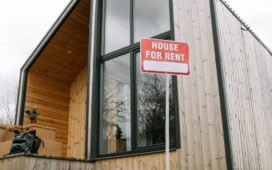Detroit Rock City? More like Detroit “Rental City.” The Motor City’s emergence as a rental haven for investors after the dark days of the 1980s, ‘90s, and early 2000s is well known. Now the city is attempting to give its residents a better chance of homeownership. However, its new homebuying assistance program could also help new investors get on the property ladder.
An exhaustive 2022 report by think tank Detroit Future City noted that there were over 42,000 landlords in Detroit. Landlords with five or more properties owned a third of the city’s rental housing. The attraction was clear: Low purchase prices, increasing rents, and urban renewal made Detroit a strong long-term bet for cash flow and appreciation.
However, for any city to thrive, it needs a healthy mix of owner-occupants, as well as renters. So recently, Detroit has introduced a grant of up to $25,000 in down payment assistance to help tenants become homeowners and curb the rising tide of investor-owned properties.
Detroit’s Play: Backing Buyers
To qualify for Detroit’s $25,000 homebuying grant, potential homeowners must prove that they have lived in the city for at least 12 months or lost a home in the city to foreclosure between 2010 and 2016.
“It’s definitely changing people’s lives,” Shane Ouimet, a Detroit-based mortgage broker who works with buyers looking to qualify for the program, told Realtor.com. “There are a lot of people who just don’t have 5, 6, or 10 grand, whatever it might cost them to get into a house, but they come up with $1,000.”
The additional $25,000 can be used for a down payment, closing costs, interest-rate buydowns, and even certain repairs when paired with a renovation mortgage, such as a 203(k) loan.
Additionally, the Michigan State Housing Development Authority (MSHDA) is partnering with the Tobias Harris Homeownership Initiative to pilot a shared-appreciation program, offering potential buyers as much as 40% of a home’s purchase price that can be used toward a down payment.
Homeowners do not make monthly payments. Instead, they repay the assistance to the lender when they sell or refinance, plus a share of market appreciation.
“This new partnership will help make the dream of homeownership a reality for more Detroiters, offering the kind of affordable support that leads to long-term housing stability,” Amy Hovey, CEO and executive director of MSHDA, said in the organization’s press release. “We’re moving quickly to identify new partners and programs that can help lower costs and unlock opportunities for Michigan families.”
“Homeownership is one of the most powerful ways to build stability and generational wealth,” said Tobias Harris of the Detroit Pistons, who is championing the project, in the press release. “With this initiative, I’m focused on expanding access to homeownership so Detroiters can plant roots and build equity in the city they call home.”
From Tenants to Homeowners to Investors
Almost 60% of Detroit tenants are cost-burdened, spending over 30% of their monthly income on rent. However, in the same way that the new housing initiatives help tenants become homeowners, it can also help new owners become investors by enabling them to save money for a down payment on another home, or renting rooms in their primary residence, (no minimum time period of primary home residency is stipulated to qualify for the grant), and moving into a rental and benefitting from the cash flow—a process known as “Rentvesting,” which has proved popular in the city.
“Detroit has become a prime city for rentvesters—people who rent where they live, but own investment properties here,” Erica Collica, a Detroit-based real estate agent, told Realtor.com.
Out-of-towners looking to take advantage of Detroit’s housing initiative to kick-start their investing career would need to rent in the city for a year before applying for a grant.
Other Midwestern Cities Favorable to Investors
Other Midwestern cities offer an attractive mix of affordability and decent rents, according to Zillow and the U.S. Census, making them viable alternatives for investors considering Detroit.
St. Louis, Missouri
Affordability and economic diversification across healthcare and logistics have helped St. Louis tick all the investment boxes for prospective landlords.
- Average single-family home value: $180,070
- Average rent (all home types): $1,263
- Percentage of renters vs. owners: Owner-occupied 45.4%; renter-occupied 54.6%
Cleveland, Ohio
The world-famous Cleveland Clinic has made the city a healthcare hot spot, while its low entry point has made it ripe for appreciation.
- Average single-family home value: $113,340
- Average rent (all home types): $1,213
- Percentage of renters vs. owners: Owner-occupied 46.7%; renter-occupied 53.3%
Indianapolis, Indiana
According to U-Haul data, Indianapolis has experienced a quiet net migration recently, with new residents—many from fellow Midwest cities—drawn to its affordability and amenities.
- Average single-family home value: $229,845
- Average rent (all home types): $1,500
- Percentage of renters vs. owners: Owner-occupied 64.9%; renter-occupied: 26.9%
Chicago, Illinois
Chicago has received a bad rap in recent years, but its surrounding suburban area can offer affordability and competitive rents, along with diversification and economic resilience, making it a reliable investment, as long as you know where to look.
Currently, the Chicago market is more balanced than it was in previous years, with home prices stabilizing and inventory levels increasing. Affordable suburban markets such as Bronzeville, Avondale, and Jefferson Park are in high demand.
- Average single-family home value: $311,033
- Average rent (all home types): $1,995
- Percentage of renters vs. owners: Owner-occupied 56.6%; renter-occupied 31.8%
According to Benzinga, the Midwest dominates the 25 best cities to buy a rental property based on ROI, which are:
- Detroit, Michigan
- Houma, Louisiana
- Birmingham, Alabama
- Cleveland, Ohio
- Toledo, Ohio
- Rochester, New York
- Memphis, Tennessee
- Youngstown, Ohio
- Columbus, Ohio
- Milwaukee, Wisconsin
- Indianapolis, Indiana
- Huntsville, Alabama
- Dayton, Ohio
- Kansas City, Missouri
- Little Rock, Arkansas
- Tampa, Florida
- Tulsa, Oklahoma
- Charlotte, North Carolina
- Nashville, Tennessee
- Buffalo, New York
- Fort Wayne, Indiana
- Springfield, Missouri
- Omaha, Nebraska
- Dallas-Fort Worth, Texas
- Fresno, California
Final Thoughts
The Midwest is currently one of the nation’s hottest housing markets. Its apartment shortage has made it ripe for investment, as evidenced by Morgan Properties’ $501 million purchase of 3,000 units across the area earlier this year. Developers’ focus on the Sunbelt has made the Midwest a great place to buy single-family homes. In contrast, large-scale developers are focused on building new apartment buildings, which can take years to come to fruition.
Although Detroit has made headlines in recent years due to its remarkable economic turnaround and high rental yields, it is certainly not the only worthwhile market worth investigating in the Midwest. Highlighting its credentials is the fact that the Midwest also generates more yield for investors than other regions. Housing has yet to keep pace with the area’s economic growth, making it an ideal opportunity for smaller investors to buy.












